Latin America and the Caribbean (LAC)
Overview
Representing the entire continent of South America and the Caribbean Region, this region encompasses geographies ranging from the vast Amazon rainforest to tiny, dispersed islands. With well over half a billion people, it is also home to an impressive array of Indigenous peoples and diversity, although the region has also struggled with the legacy of European colonialism. While LAC includes some of the world’s largest economies (notably Brazil), it also faces a wide variety of development challenges. These include social and economic vulnerability, ever-increasing wealth stratification, political instability, and the threat of climate change, which is especially harmful to island nations.
Projects
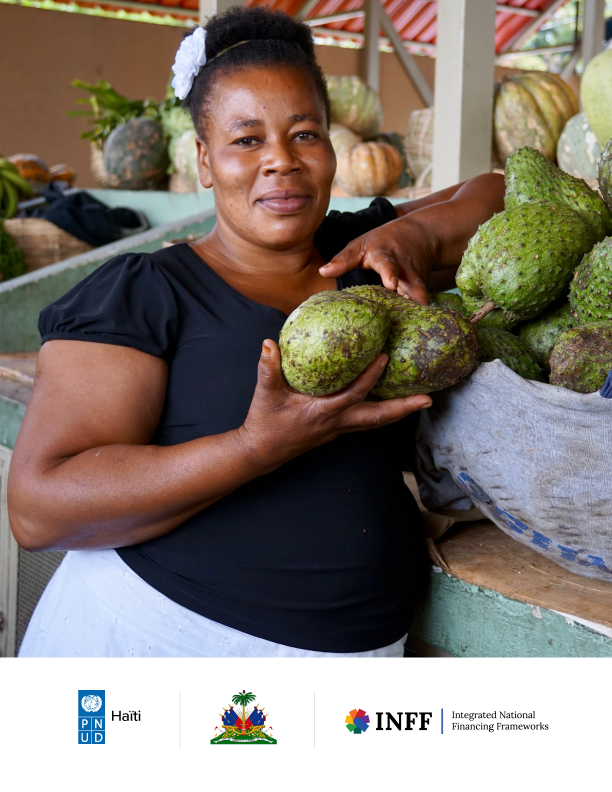
- Partner(s): Haiti Ministry of Planning and External Cooperation (MPCE), Integrated National Financing Framework (INFF), UNDP Haiti (Funder)
DPA, in support of Haiti’s Integrated National Financing Framework (INFF), and in close collaboration with the UNDP Haiti and the Ministry of Planning and External Cooperation (MPCE), has conducted a consultation with the objective of establishing a performance assessment of the achievement of the MDGs, deviations from targets, their justifications, and lessons learned. Additionally, the study measured the progress towards the achievement of the SDGs and proposed priority provisions and mechanisms for Haiti’s advancement towards them.
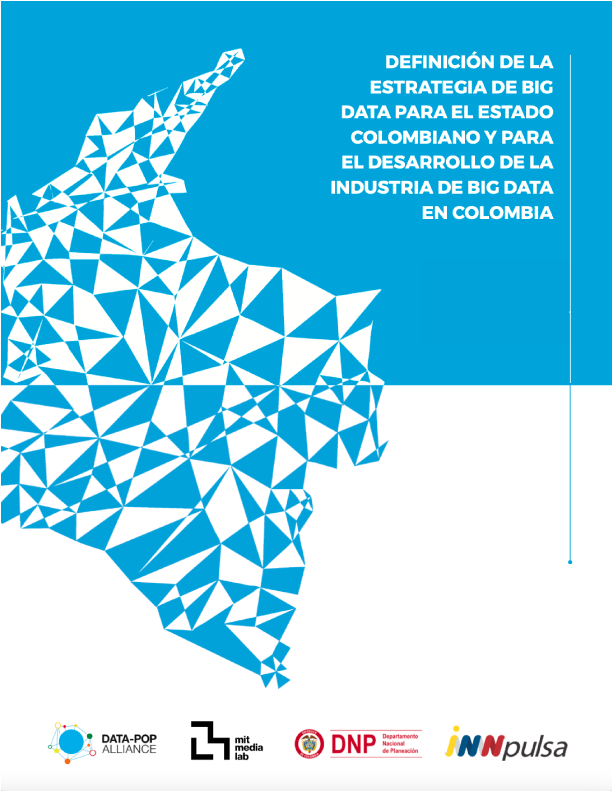
- Partner(s): Department of National Planning (DNP) - (Funder), iNNpulsa, MIT Media Lab
The MIT Media Lab and DPA provided technical assistance to iNNpulsa—Colombia’s entrepreneurship and innovation agency—and to the Department of National Planning (DNP), in the design and development of the country’s first national Big Data strategy, which was presented to the President of Colombia in 2020. After intensive research, DPA produced nine diagnostic documents that were used to identify priority areas and specific actions that generated the necessary synergies to achieve four strategic objectives of the project:
(1) Strengthen the Big Data ecosystem in the country;
(2) Develop analytical capabilities for greater and better use of data;
(3) Foster the digital economy; and
(4) Promote the adoption of Big Data solutions and AI for public administration.
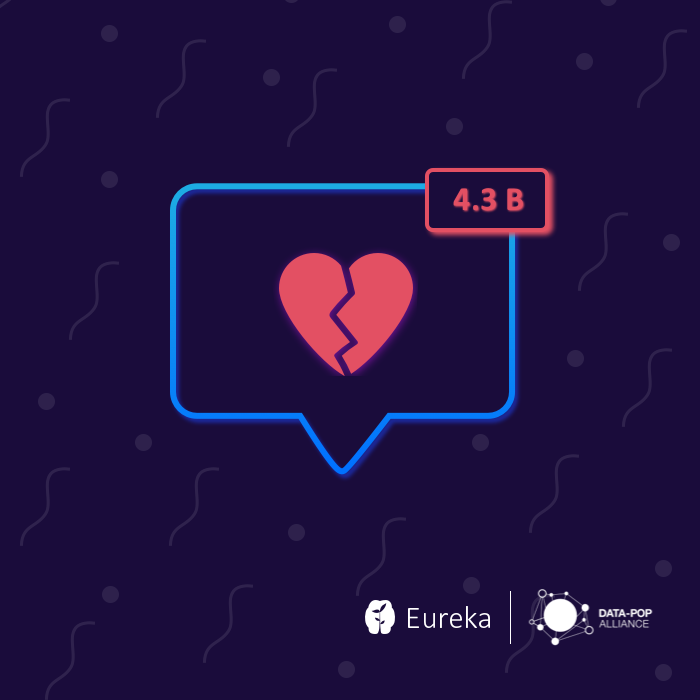
- Partner(s): Eureka
The Book and Movie Club “Networks’ Capitalism: Addiction, Disinformation and Violence”, by DPA and Eureka, focused on addiction, disinformation, and violence stemming from social media in the context of Latin America. It featured a panel discussion led by Paula Villarreal (Data Scientist & Full Stack Engineer), Matías González (Observatorio Legislativo del CELE), and Julie Ricard (Eureka Founder), and moderated by Ivette Yáñez (DPA).

- Partner(s): GIZ (Funder), GIZ Data Lab, GIZ Ecuador
In partnership with the GIZ Data Lab, this project sought to create a Toolkit to guide GIZ in the use of nontraditional data sources throughout the project lifecycle. The tool was designed and developed from a thorough analysis of GIZ processes, with the goal of understanding how and where non-traditional sources of data could be leveraged in the formulation, design, implementation, and evaluation of their projects. The Toolkit, designed with a user-centered approach, was tested and tried during two workshops to support GIZ Ecuador’s “Ciudades Intermedias Sostenibles” II.

The current debate on the collection and use of race-related data is shaped by country-specific cultural practices and historical backgrounds. Nevertheless, there is a pressing need for more and better racial data in all societies, as a prerequisite for addressing related inequalities. The Racial Justice Data Project contributed to this movement of greater visibility for racial data while focusing on regions that have not been sufficiently explored (Europe and Latin America) and will eventually cover multiple racial-related themes within the platform.
The project provided valuable inputs that can be used by a wide range of actors, from civil society, journalists, researchers, and individuals to advance advocacy causes through data-driven strategies, to public or private stakeholders as a fundamental tool for evidence-based decision-making. To achieve these goals, the project leveraged data from a wide variety of traditional and non-traditional sources, including existing datasets, reports from civil society organizations, legal documents, and social media to present a fuller picture of the effects of racism in an accessible and actionable manner.
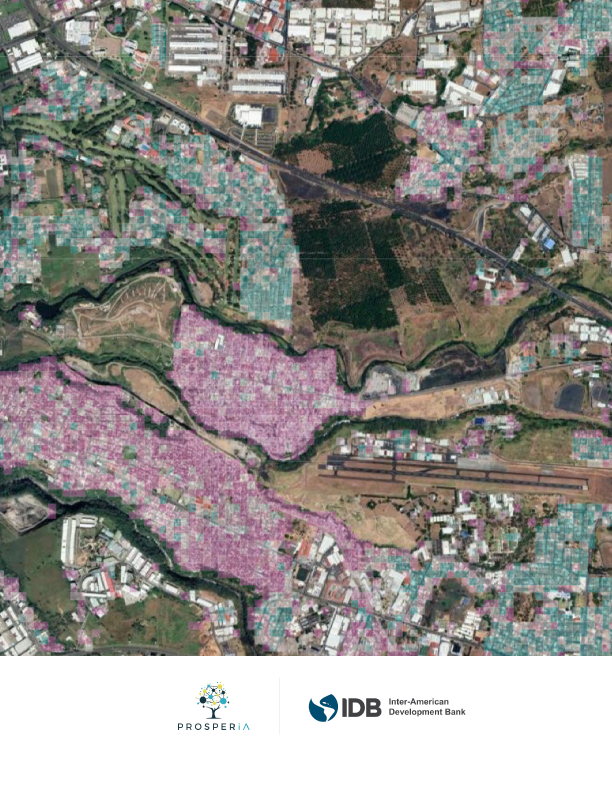
- Partner(s): Inter-American Development Bank (Funder), Prosperia (Lead)
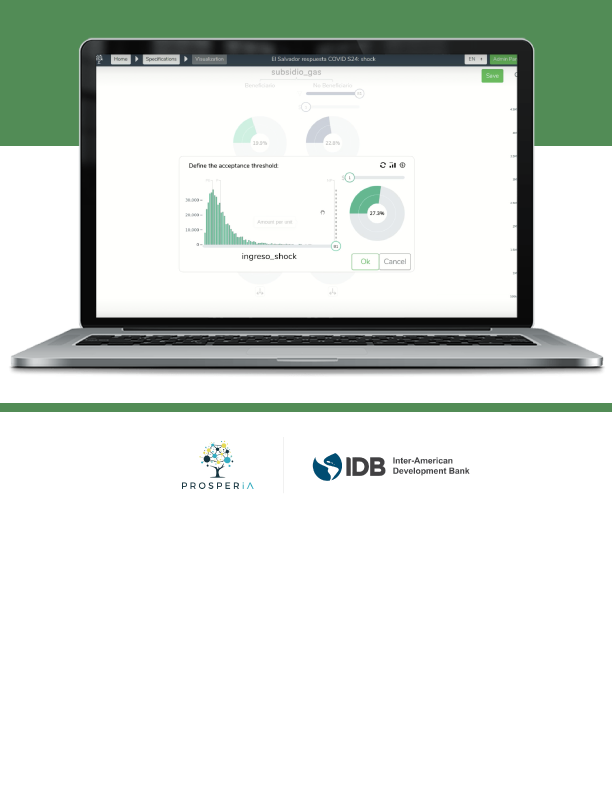
- Partner(s): Inter-American Development Bank - Costa Rica (Funder), ProsperIA
Criteria, a project led by Prosperia with funding from the Inter-American Development Bank (IDB) and support from Data-Pop Alliance, is an interactive decision support system that empowers policy-makers to explore, analyze, and take decisions on the basis of a large number of potential designs and targeting schemes for social policies. Criteria uses microsimulations on survey and administrative data to visualize the expected poverty impact of policy alternatives resulting from the COVID-19 pandemic, as well as their associated costs.
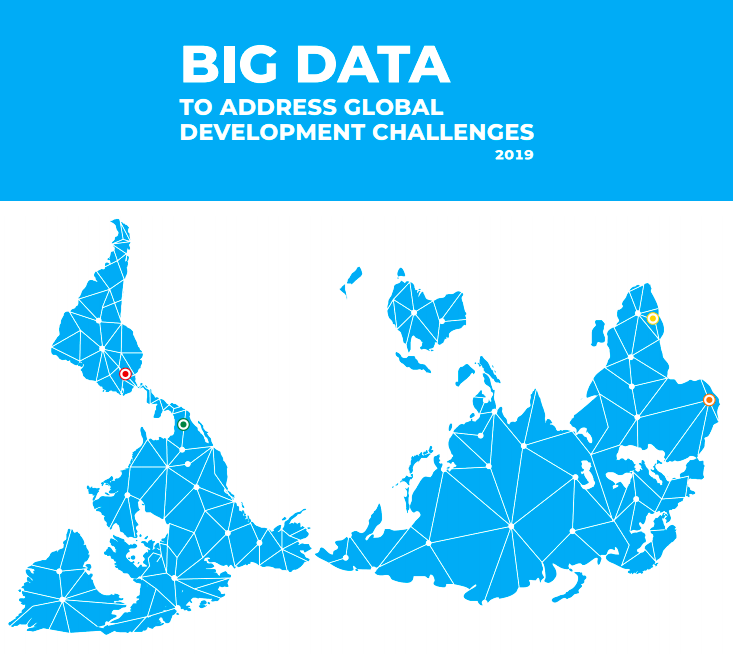
- Partner(s): Agence Française de Développement - AFD (Funder), Cloud to Street, Flowminder, Harvard Humanitarian Initiative, MIT Media Lab, Overseas Development Institute
Four research papers were developed in collaboration with and funded by the Agence Française de Développement (AFD) between 2016 and 2019 under a joint program with Data-Pop Alliance and research partners (Cloud to Street, Flowminder, Harvard Humanitarian Initiative, MIT Media Lab, Overseas Development Institute) titled “Strengthening the evidence-base for leveraging Big Data to address global development challenges”. This research program and papers were designed with the following objectives and criteria in mind: to focus on various development challenges in different local contexts to ensure relevance; to work with trusted partners to ensure academic quality; and to both reflect and promote key determinants of sustainable development, including smoother, fairer, and safer access to data and stronger links between analysts, local decision-makers, and communities. Individually, these papers outlined specific cases and examples of how computational analysis of behavioral data (combined with other datasets) can paint a finer-grained, more complex, and dynamic picture of human reality than ‘traditional’ data allows. Collectively, they sketched the contours of a world where public decisions, in the form of policies and programs, might someday be designed, implemented, and evaluated using the best available data and approaches.

- Partner(s): Inter-American Development Bank (Funder)
This project aimed to support the Inter-American Development Bank (IDB) in preparing for the IDB Andean Summit event held on November 29, 2018, in Quito, Ecuador. A study was generated that identified new Big Data tools being developed and/or used by academic institutions, international organizations, and the public or private sector that would concretely benefit current and future IDB projects. Based on DPA’s experience, the consultancy’s goal was to contribute to the IDB’s knowledge, identification, and capabilities regarding available technological tools that provided observable material improvements at different stages of current or future projects. The study focused on IDB projects in five countries in the region: Bolivia, Colombia, Ecuador, Peru, and Venezuela.
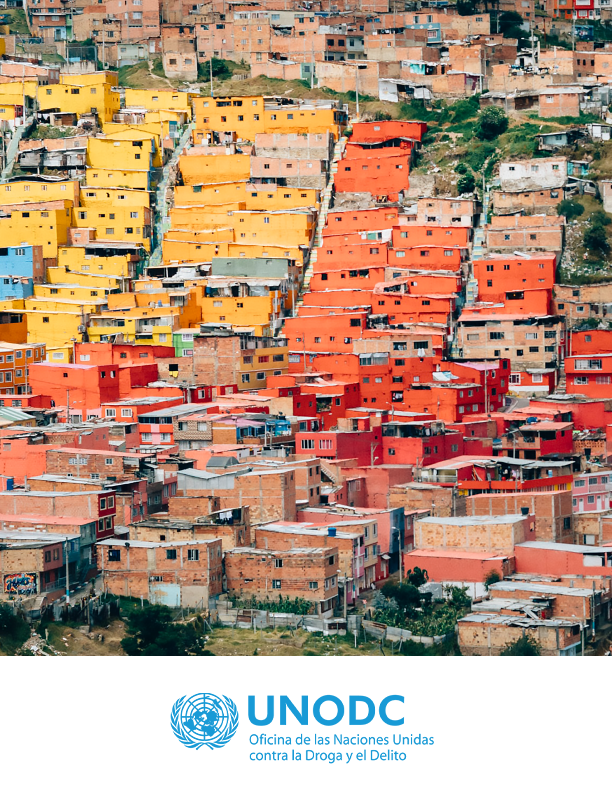
- Partner(s): UNODC (Funder)
A study published by the Open Society Foundations has reported numerous “atrocity crimes” perpetrated in Mexico against the civilian population since 2006. Against this backdrop, with United Nations Office on Drugs and Crime (UNODC) support, DPA sought to gain better insights into organized and interpersonal crime, by undertaking a scoping study to build a comparative research study in two cities: one heavily affected by organized crime violence and another with low organized crime rates, where violence is mostly interpersonal. To this end, this scoping study aimed at building a research proposal for two cities, according to data availability (i.e. traditional and Big Data sources) and crime dynamics; suggested methodology, and potential partners.

- Partner(s): Cuebiq, OXFAM México
“Parallel Worlds” was a project developed by Data-Pop Alliance and Oxfam México to analyze inequality in Mexico City using mobility data provided by Cuebiq’s Data for Good program. The project aimed to inform and influence public policy actors in making decisions that contribute to reducing social and economic segregation based on the privilege and marginalization associated with certain spaces in the city.
Data-Pop Alliance analyzed urban inequality in Mexico City by mapping movement patterns in the city, using mobile data to identify segregation patterns related to where people live, work, and consume. The report analyzed three dimensions of inequality: access to education, the right to the city by analyzing exclusive spaces, and access to culture.
The results demonstrated that spatial inequality in Mexico City is marked by unequal access to government services and cultural sites, leading to unequal experiences of urban life and biased access to the city. The paper concluded with a series of public policy recommendations to foster a more equitable and inclusive appropriation of public space. A version of this paper was published in English by Projections, the Journal of the MIT Department of Urban Studies and Planning.
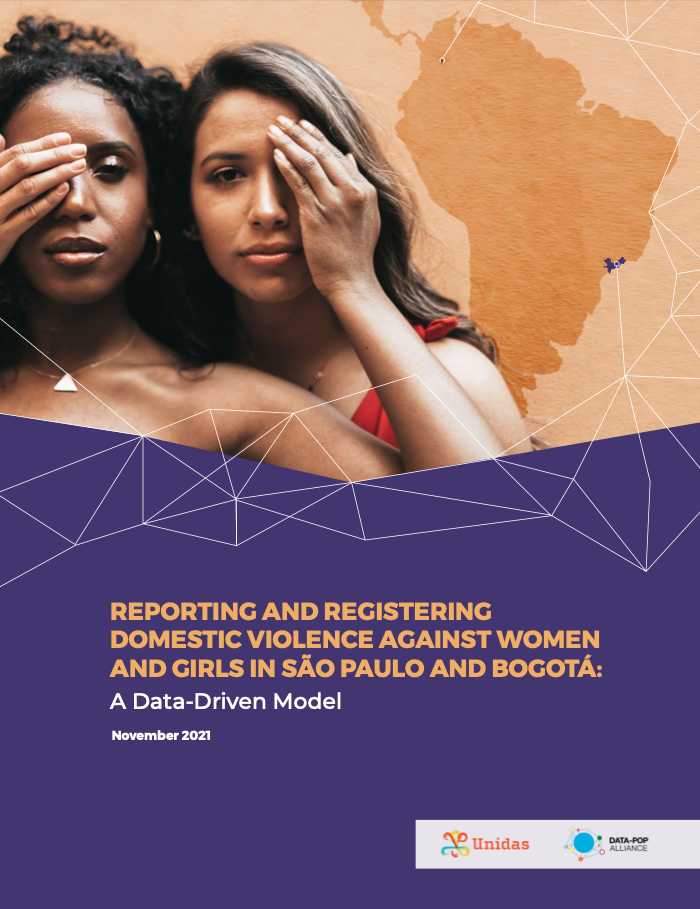
- Partner(s): GIZ (Funder), GIZ Data Lab, GIZ México, Unidas
This project, developed in partnership with UNIDAS and GIZ Data Lab, leveraged traditional and non-traditional data sources to assess the reporting capability of women and girls in Mexico City, Bogota and Sao Paulo. The analytical model estimated the probability of registering domestic violence at the locality or municipal level, taking into account personal (e.g. age, educational attainment) and environmental factors (e.g. access to support services, human mobility during the COVID-19 quarantine). The report for Mexico is not available.

- Partner(s): WhereIsMyTransport (Funder)
Female and male commuters utilize public transportation differently, yet not enough is known about women’s commuting experiences and challenges. In countries such as Mexico and Peru, gendered perspectives in public policy are starting to be considered, but public action remains insufficient. Together with the socially-focused company WhereIsMyTransport, DPA collected data via online surveys that reflects the issues faced by women transportation users in Mexico City, Mexico and Lima, Peru. The resulting paper highlighted the findings and provided actionable recommendations to empower female commuters and promote gender equality.
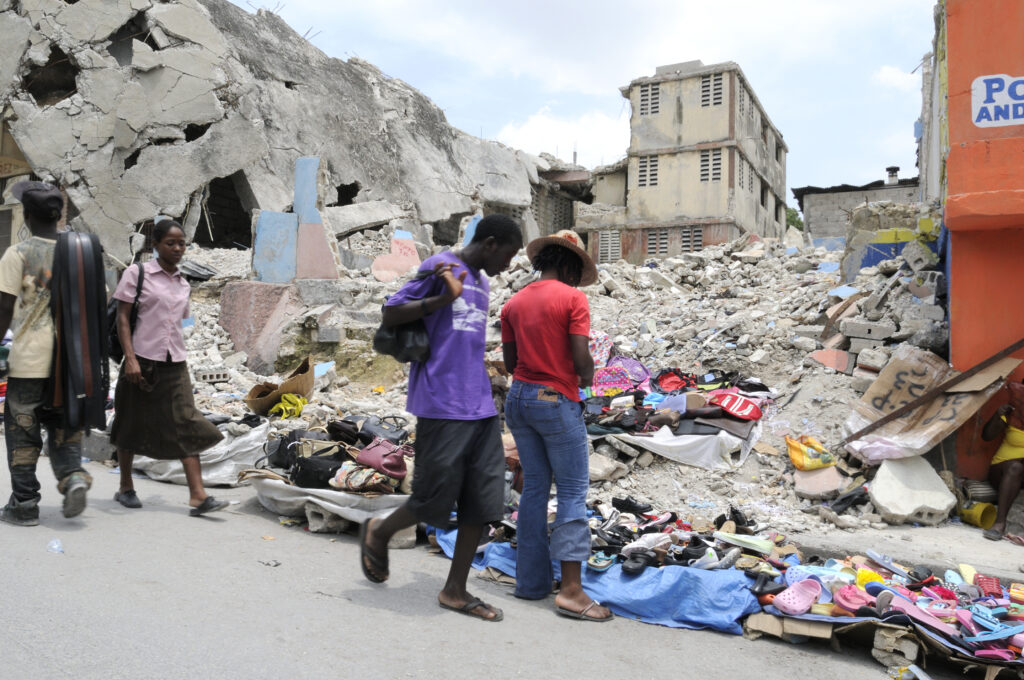
- Partner(s): UNICEF Haiti (Funder)
DPA, in collaboration with UNICEF Haiti, collaborated on a study to examine the effects of violence on children and youth in Port-au-Prince’s urban areas. The study aimed to understand the complex relationship between socio-economic factors, violence, and the experiences of children and youth in Port-au-Prince, Haiti by:
(1) Mapping violence involving or affecting children and youth, and identify affected areas’ socioeconomic characteristics;
(2) Analyzing the context to understand the factors driving children and youth to engage in violence;
(3) Gathering detailed data on the situation, its effects on children, recent trends, and existing initiatives addressing the issue; and
(4) Developing strategies to prevent youth violence, protect children and youth, and address the root causes of violence.
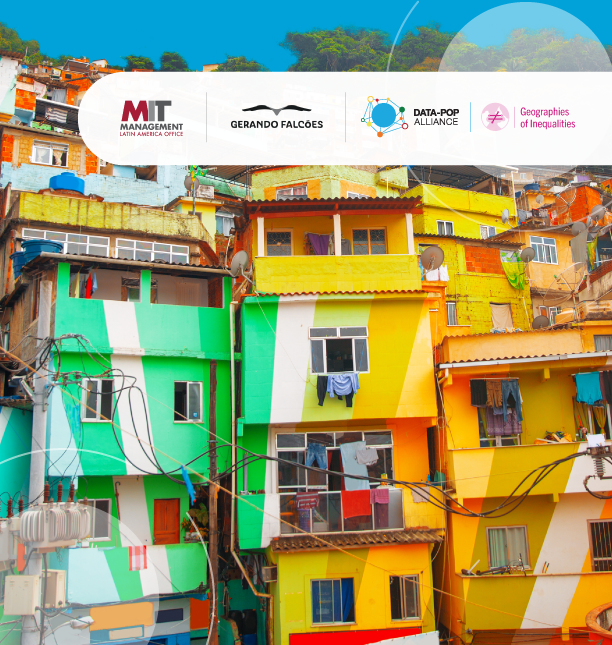
- Partner(s): Gerando Falcões, MIT Sloan Latin America Office ( MSLAO) - (Funder)
